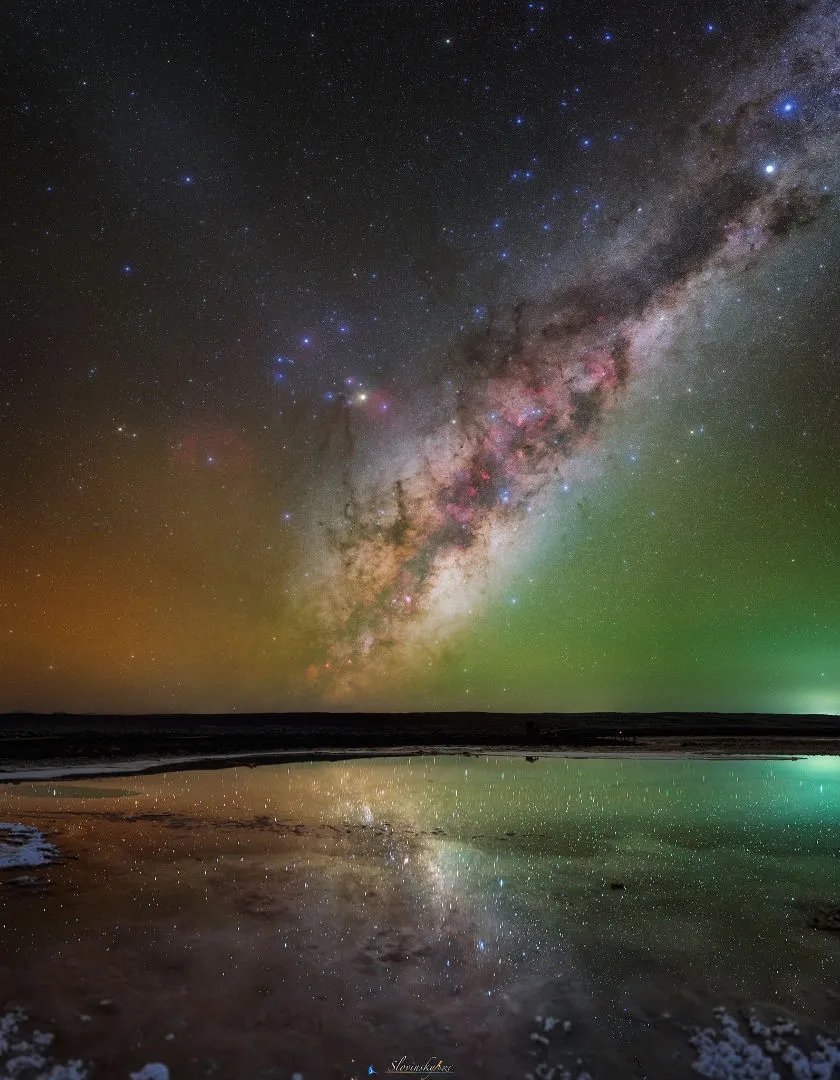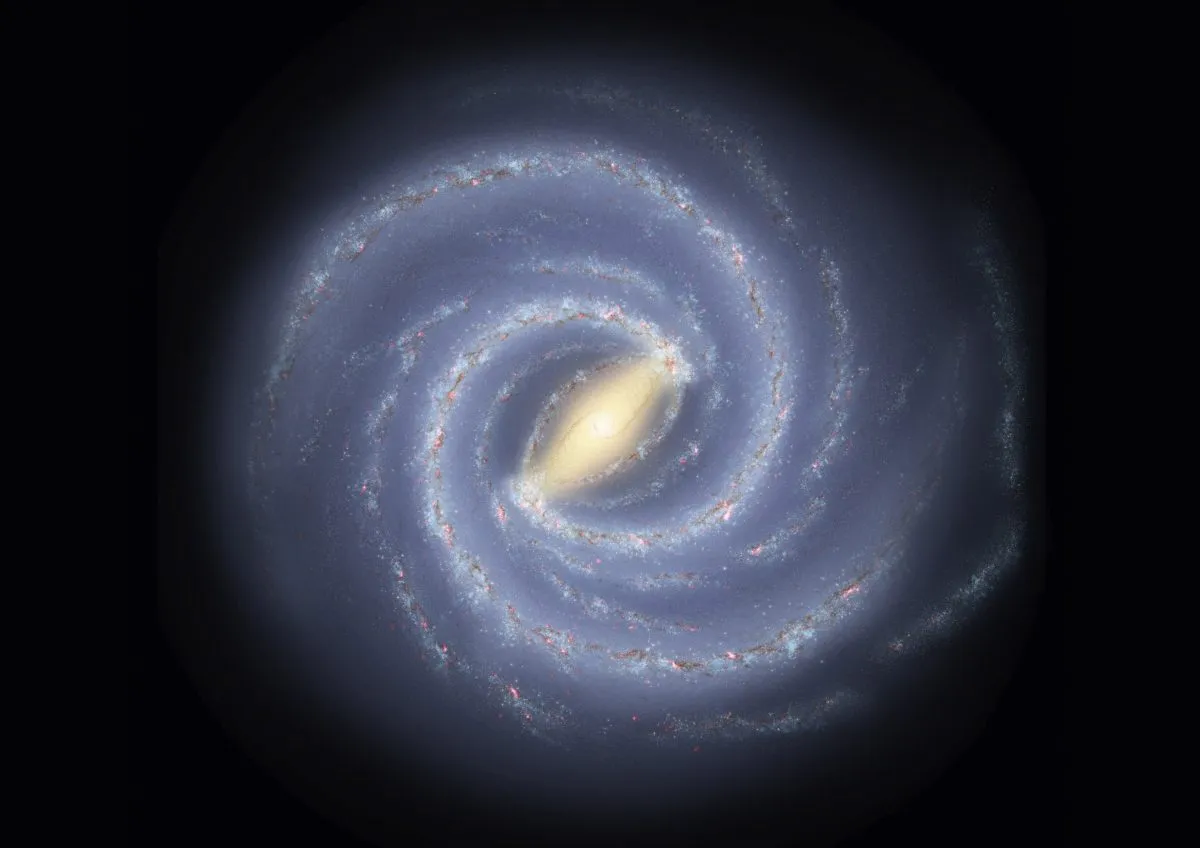During those times that we manage to get ourselves to a wonderful dark-sky site on a clear night, the blanket of sparkling stars that stretches across the night sky is utterly breathtaking.
But Earth lies in one of the spiral arms of the Milky Way, known as the Orion Arm, far out from the centre of our home galaxy.
And stars are much more densely packed at the centres of galaxies. So what would our night sky look like if we were closer to the core of the Milky Way?

The intensity of light decreases by the inverse of the distance squared. So if you double the distance, then the brightness decreases to a quarter of what it was previously.
But halve the distance and the source will brighten by four times.
Moving closer to the centre of our Milky Way Galaxy is more complicated, because we are now no longer simply approaching a single star.
The central regions of our Galaxy contain many more stars than our solar neighbourhood, so as we approach this region there are many more light sources that begin to shine more brightly.

The additional complication is due to the presence of vast amounts of obscuring gas and dust that currently hides the nucleus of our galaxy at optical wavelengths.
If we approached close enough to the centre of the Milky Way that we moved through most of this material and the galactic core became visible, we would be looking at a sky ablaze with stars; a dazzling display day and night.
This would be great for observing stars, but would make things difficult for deep-sky astronomers.
